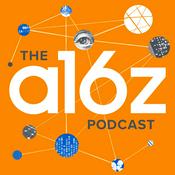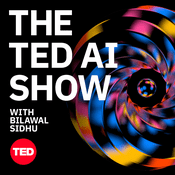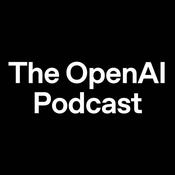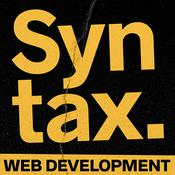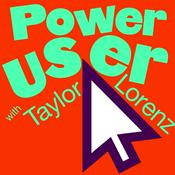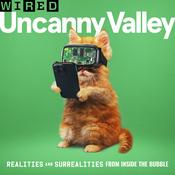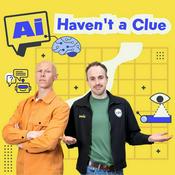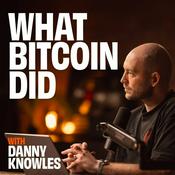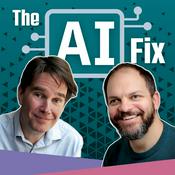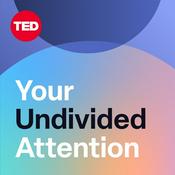Available Episodes
5 of 106
- AI Storytelling with DOMEIn this episode, we explore DOME (Dynamic Hierarchical Outlining with Memory-Enhancement)—a groundbreaking AI method transforming long-form story generation. Learn how DOME overcomes traditional AI storytelling challenges by using a Dynamic Hierarchical Outline (DHO) for adaptive plotting and a Memory-Enhancement Module (MEM) with temporal knowledge graphs for consistency. We discuss its five-stage novel writing framework, conflict resolution, automatic evaluation, and experimental results that showcase its impact on coherence, fluency, and scalability. Tune in to discover how DOME is shaping the future of AI-driven creative writing! https://arxiv.org/pdf/2412.13575--------15:18
- Intelligence Explosion MicroeconomicsThis episode delves into intelligence explosion microeconomics, a framework for understanding the mechanisms driving AI progress, introduced by Eliezer Yudkowsky. It focuses on returns on cognitive reinvestment, where an AI's ability to improve its own design could trigger a self-reinforcing cycle of rapid intelligence growth. The episode contrasts scenarios where this reinvestment is minimal (intelligence fizzle) versus extreme (intelligence explosion).Key discussions include the influence of brain size, algorithmic efficiency, and communication on cognitive abilities, as well as the roles of serial depth vs. parallelism in accelerating AI progress. It explores population scaling, emphasizing limits on human collaboration, and challenges I.J. Good's "ultraintelligence" concept by suggesting weaker conditions might suffice for an intelligence explosion.The episode also acknowledges unknown unknowns, highlighting the unpredictability of AI breakthroughs, and proposes a roadmap to formalize and analyze different perspectives on AI growth. This roadmap involves creating rigorous microfoundational hypotheses, relating them to historical data, and developing a comprehensive model for probabilistic predictions.Overall, the episode provides a deeper understanding of the complex forces that could drive an intelligence explosion in AI.https://intelligence.org/files/IEM.pdf--------17:52
- Metacognitive Monitoring: A Human Ability Beyond AIThe episode explores a study on the metacognitive abilities of Large Language Models (LLMs), focusing on ChatGPT's capacity to predict human memory performance. The study found that while humans could reliably predict their memory performance based on sentence memorability ratings, ChatGPT's predictions did not correlate with actual human memory outcomes, highlighting its lack of metacognitive monitoring.Humans outperformed various ChatGPT models (including GPT-3.5-turbo and GPT-4-turbo) in predicting memory performance, revealing that current LLMs lack the mechanisms for such self-monitoring. This limitation is significant for AI applications in education and personalized learning, where systems need to adapt to individual needs.Broader implications include LLMs' inability to capture individual human responses, which affects applications like personalized learning and increases the cognitive load on users. The study suggests improving LLM monitoring capabilities to enhance human-AI interaction and reduce this cognitive burden.The episode acknowledges limitations, such as using ChatGPT in a zero-shot context, and calls for further research to improve LLM metacognitive abilities. Addressing this gap is vital for LLMs to fully integrate into human-centered applications.https://arxiv.org/pdf/2410.13392--------7:02
- Building Living Software Systems with Generative & Agentic AIThis episode explores how Generative and Agentic AI are transforming software development, leading to the rise of living software systems. It highlights the limitations of traditional software, often inflexible and full of technical debt, and describes how Generative AI can bridge the gap between human intent and computer operations. The concept of Agentic AI is introduced as a tool for translating user goals into actions within software systems, with Prompt Engineering emphasized as a key skill for directing AI effectively. The episode envisions a future where adaptive, dynamic software systems become the norm, addressing real-time user needs.https://arxiv.org/pdf/2408.01768--------11:50
- Theory of Mind in LLMsThis episode explores Theory of Mind (ToM) and its potential emergence in large language models (LLMs). ToM is the human ability to understand others' beliefs and intentions, essential for empathy and social interactions. A recent study tested LLMs on "false-belief" tasks, where ChatGPT-4 achieved a 75% success rate, comparable to a 6-year-old child’s performance. Key points include:- Possible Explanations: ToM in LLMs may be an emergent property from language training, aided by attention mechanisms for contextual tracking.- Implications: AI with ToM could enhance human-AI interactions, but raises ethical concerns about manipulation or deception.- Future Research: Understanding how ToM develops in AI is essential for its safe integration into society.The episode also touches on philosophical debates about machine understanding and cognition, emphasizing the need for further exploration.https://www.pnas.org/doi/pdf/10.1073/pnas.2405460121--------13:35
More Technology podcasts
Trending Technology podcasts
About Agentic Horizons
Agentic Horizons is an AI-hosted podcast exploring the cutting edge of artificial intelligence. Each episode dives into topics like generative AI, agentic systems, and prompt engineering, with content generated by AI agents based on research papers and articles from top AI experts. Whether you're an AI enthusiast, developer, or industry professional, this show offers fresh, AI-driven insights into the technologies shaping the future.
Podcast websiteListen to Agentic Horizons, The a16z Show and many other podcasts from around the world with the radio.net app

Get the free radio.net app
- Stations and podcasts to bookmark
- Stream via Wi-Fi or Bluetooth
- Supports Carplay & Android Auto
- Many other app features
Get the free radio.net app
- Stations and podcasts to bookmark
- Stream via Wi-Fi or Bluetooth
- Supports Carplay & Android Auto
- Many other app features


Agentic Horizons
Scan code,
download the app,
start listening.
download the app,
start listening.
